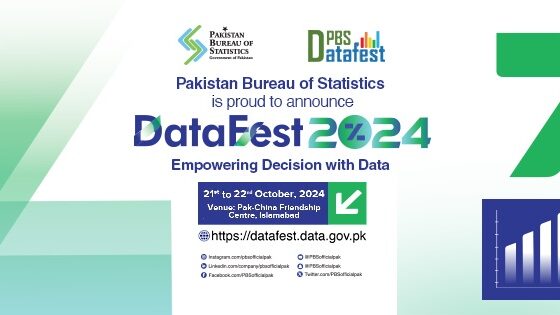Kaspersky is one of the leading online security solutions providers, ranked 4th in the online security world in terms of generating revenues. The company operates worldwide, providing online security solutions as well as conducting seminars and conferences to create awareness of the possible risk threats, malware and the future of online security. Kaspersky is now opening new centers in the Middle East regions to cater to a wide range of clients and partners.
Pakistan is a very essential country within the business network of Kaspersky in Asia. Out of our 6 distributors in Asia, one is a Pakistani firm. Kaspersky Labs has made many close partners and clients in different enterprise accounts of Pakistan. Here, Khalid and Garry talk about the different aspects of security in Middle East region.
Please tell us a little about yourself and your experience at Kaspersky Labs?
Khalid Abu-Bakr: I have been working with Kaspersky from the past 4 years, and it’s my first trip to Pakistan. I started as a Corporate Sale Officer for the region before I relocated to Managing Director’s position. We were around 7-8 people when I joined Kaspersky Middle East office, but now we’re a team of 30 people working in this lab, covering Middle East countries.
Garry: I manage the commercial side of the company for global sales, marketing and growing global business of the company. I have been working as the Managing Director of Emerging Markets in Asia at Kaspersky Labs for three and a half years. The company had a transition of its corporate structure two years back. Since then, I have moved to the position of the Global Sales and Marketing Officer.
What are the demands in Middle East region and what services are you providing?
Khalid Abu-Bakr: Middle East region is still facing cyber security threats since two and a half years. There have been different occurrences of security breaches and therefore we receive entreaties not only for our products but for our services as well. We’re introducing a number of new products and services for forensic analysis along with professional training on virus analysis. We will also provide cleaning/scrapping centers in the region for detecting direct services attack that are usually faced by banks. Apart from that, we also have brands for detecting frauds in the banking sector.
There is a dire need for training and awareness because at the end of the day we have to go back to the basic knowledge about IT security. We’re doing a number of training and awareness sessions for our partners. Consumers need to have the sense of cyber security and the risky consequences of its absence. In Middle East, hackers can give you access to 1000 PC’s for just $6 – this is how vulnerable internet security is in Middle East.
We’re generally focused on security with our technical products and services. Our primary goal is to solve every problem of our customers while keeping them updated and safe. Unlike our competitors, we are not promoting products and services of other companies. Our products and services are developed in-house, this gives us the advantage of being fully aware and in control of using the applications we produce.
Do you think organizations are now aware of cyber security risks and management?
Garry: In many cases, you can see that people are now more aware of security threats, especially people from financial industries like banks, which have already experienced attacks of such sorts. Since they already have certain amounts of awareness, they consider themselves capable enough to decide the precise solutions for protection. However, thinking about the need for protection does not protect you perfectly – online security is a very sensitive and complicated process. The product and its implementation via accurate channels are two separate things. At some points in the security process, one needs security products, professional expertise as well as awareness of the possible up-to-date solutions. On the other hand, when it comes to organizing the entire process for supporting the system, people lack skills to see through the sensitive and delicate nature of this process; and they’re practically incapable of carrying out procedures of such sorts. Kaspersky aims to provide vendors and customers with not only products but also awareness.
Can you please highlight malware security risks?
Garry: It’s been long since the internet was plagued with viruses and online security risks but up till now, malware has been assessed insufficiently in comparison to what it actually is. For instance, the name ‘virus’ is only 5% of all the malware. It was termed as ‘virus’ historically. But now malware is about managing different things i.e. viruses, flaws, worms and a lot of different things – specifically key-loggers, as there are a lot of people are involved in key-loggers as well. In short, there is a huge amount of malware out there and all these malwares are the key businesses for hackers to make money. Any hacker has the possibility to hack into a backing system or any online database if it’s not secured. It’s a serious threat with a growing number of risks every single day.
You’ve been in the anti-virus business for a long time. What are your thoughts on the evolution of malware?
Garry: It cannot be said precisely that a malware attack is produced by hackers; we can’t predict either to what end these attacks would go, but there is firm evidence for the severity of these attacks in the future. It’s always in a state of evolution – like a chain reaction – where you cannot be sure about the second stage of attack after you have tackled the first one. Your system needs constant protection from malware.
These malware and their evolution is only one side of the story. On the other hand, partners of Kaspersky face problems in taking initiatives and giving new services to customers because the demands are high. Therefore, we are opening new centers to help our partners in Pakistan and Middle East. We are also conducting seminars around the world to spread awareness because it’s the key to detect and prevent your system from dangerous malware.
What is the biggest cyber threat to governments, businesses and consumers?
Khalid Abu-Bakr: We have a saying at Kaspersky, “By malware, you can control a nuclear weapon. But by a nuclear weapon, you cannot destroy a malware”. So, imagine the possible destruction a malware can cause. Infrastructure is seriously being damaged because of malware development and it’s not fun anymore to create a virus. The sixth tribe of the malware is the hacktivism, not the activist; they are group hackers who want to destroy a massive system.
Secondly, in several countries, business companies spy and steal information data from their competitors– and it’s also a very serious cyber crime. Then, there is Cyber Warfare where a lot of cyber warfare drivers gather together to affect each other, and they are among different countries. Governments have to invest huge funds to keep the infrastructure safe from destruction caused by malware.
Once a system is deployed in an organization, what other services does Kaspersky provide to the client?
Khalid Abu-Bakr: We have created so many online functions and services inside our Middle East office. We are always in touch with our clients via e-mail. There is a web portal with featured blogs, documentations and information for our customers to deploy and use our products efficiently. They communicate with us directly when they have any problem.
We cover infrastructure security from PCs up to the gateway, covering infrastructure level as well as application within. Our products are comprised of four layers. The core layer is based on anti-malware while the others contain about 20 modules to secure the infrastructure. It’s not just security – it’s basically the control that results in securing the infrastructure. For this particular function, we have application control, device control, web monitoring, filtering, mobile device management, mobile security and license management for the piracy.
Work ability management is extremely important as it allows us to inform our users who are out of their network without updating batches. We recommend and advise our users to update a particular batch, application or a machine which has not been updated for more than a month. It is very helpful because 80% of the attacks are coming from the inside.
Garry: Expertise and quality products are essential factors for your success when you are working in a global market because global competition is always tough. There are several independent tests of technology products and Kaspersky has always stood among the top ones in results. Our team understands that providing quality services with global standards is the key to success. This year, Kaspersky is going to implement different services to different markets. Besides, we are also planning to setup new centers to help protect our Middle East region customer from malware attacks that are extremely harmful.
Where does Pakistan stand in the 200 countries where Kaspersky Labs is currently operating in?
Khalid Abu-Bakr: In the past four years, Pakistan has grown more than 200% because our partners are working in Pakistan and users in Pakistan are very much aware of cyber security risks as well as cyber security products and services. People are now updated and in touch with global market and they require better products and services on priority basis. We continuously keep in touch with our client groups in Pakistan which results in approximately 90% sales at the end of every month. Clients are offered to test our products where they compare Kaspersky with their present applications. We give them the leverage to finalize the deal when they are completely satisfied with the application’s performance and understand the advantages. This is our benchmark – we are changing mindsets!
Can you shed some light on the Kaspersky forecast for 2014?
Khalid Abu-Bakr: Our forecast is always growth – and it is growth because it always increases market share. Generally, the market is shrinking but we also possess other markets share because our targets are set to double digit growth. In 2013, we have earned about more than 15% of the market share – and this year it is more likely to grow because Kaspersky has several new products in the pipeline.









